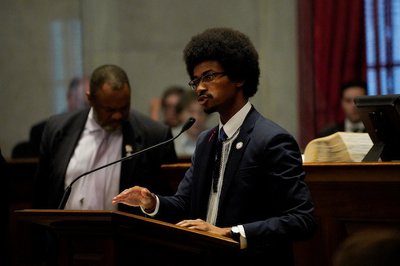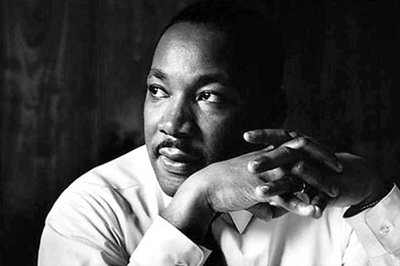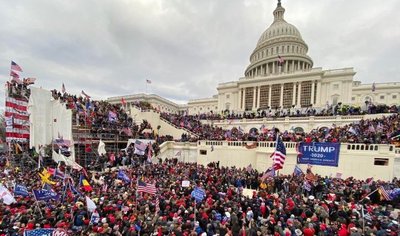Overview
This week, two Democratic members of Tennessee’s House of Representatives were reinstated after being expelled by their Republican colleagues for participating in a gun violence protest. In his speech on the House floor, Rep. Justin Pearson referred to the hypocrisy of being expelled the week before for protesting by a group of people who celebrate historical protest on the Fourth of July.
In this lesson, students will read excerpts from Pearson’s speech and Frederick Douglass’s famous speech, “What To The Slave is the Fourth of July?” in order to compare, contrast and form their own opinions.
Objectives
Students will think about the role of protest in U.S. History as well as the multiple symbolic meanings that days such as the 4th of July can hold.
Subjects
history, social studies, civics, EnglishMaterials:
Student handout with excerpts from Rep. Justin Pearson and Frederick Douglass's speeches about the Fourth of July
- Timeline on the History of Independence Day
- News clip about the "Tennessee Three" (0:00-1:42)
- Video excerpt of Rep. Justin Pearson's speech referencing the 4th of July (20:22 - 21:22)
- Brief history of Frederick Douglass
- Historical context of Douglass's speech, “What To The Slave is the Fourth of July?, as well as full text of the speech
Warm up: Have students brainstorm the significance of the Fourth of July holiday. What is the history behind the holiday and what is its significance? What does it mean to students? They can jot down notes in their notebooks or create a Google doc.
Main activity:
- Have students share out their responses from the warm up activity. Teachers can share this timeline from PBS about the history of Independence Day. Ask students : When did July 4th become a national holiday and why? How was it suggested that they celebrate the holiday?
- Share what happened last week at the Tennessee House of Representatives. If you'd like, play this news clip for context (0:00-1:42)
- Share an excerpt from Rep. Justin Pearson’s speech where he references the 4th of July and watch a clip of him delivering it here from 20:22 - 21:22. Ask students to reflect on the following with a partner:
- What is the main idea of Pearson’s message to the Tennessee representatives who are determining if they should expel him?
- What does he mean when he says “in a country that was built on protest”?
- How does Pearson use the significance of the 4th of July in his speech? How does he use this national holiday to reveal the hypocrisy of the decision to potentially expel him from the legislature?
- Share a brief history about Frederick Douglass with students including some brief historical context about his famous speech “What To The Slave is the Fourth of July?” (full text here ). After reading an excerpt of the speech, ask students to reflect on the following with a partner:
- What is the main message in this part of his speech?
- How does Douglass use the significance of the Fourth of July to make his larger point about the hypocrisy of slavery in America?
2. Whole class discussion : Compare Douglass’s and Pearson’s Fourth of July speeches using the following questions:
Sari Beth Rosenberg is an AP U.S. History teacher at High School for Environmental Studies in New York City. This lesson originally appeared here on her Substack, Yo, Miss!.






